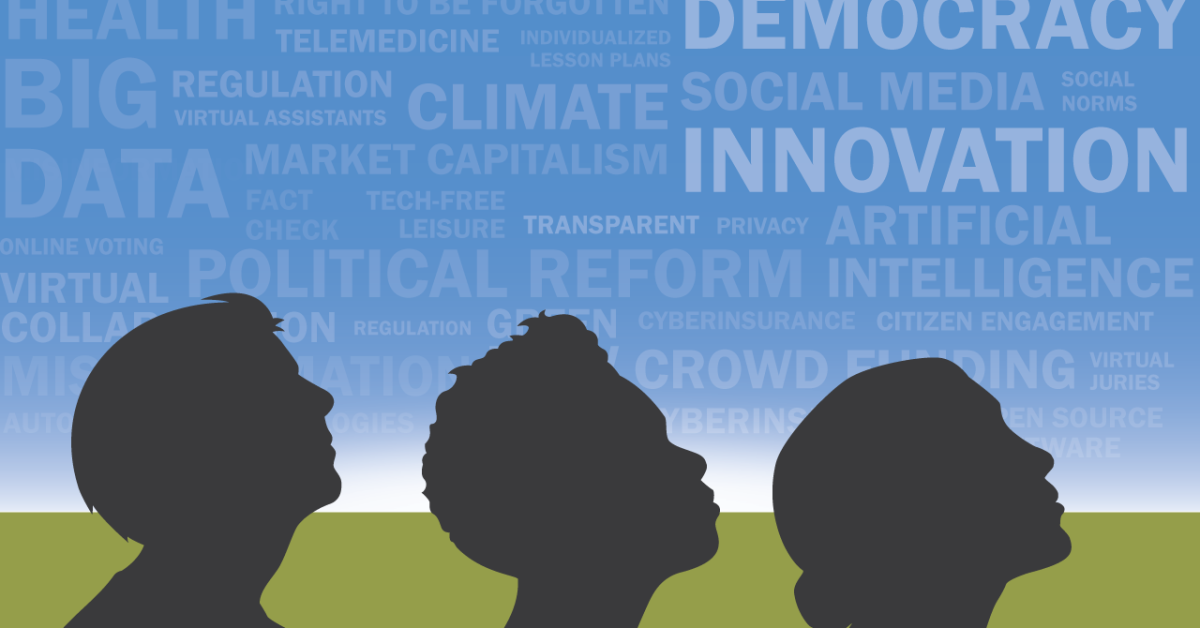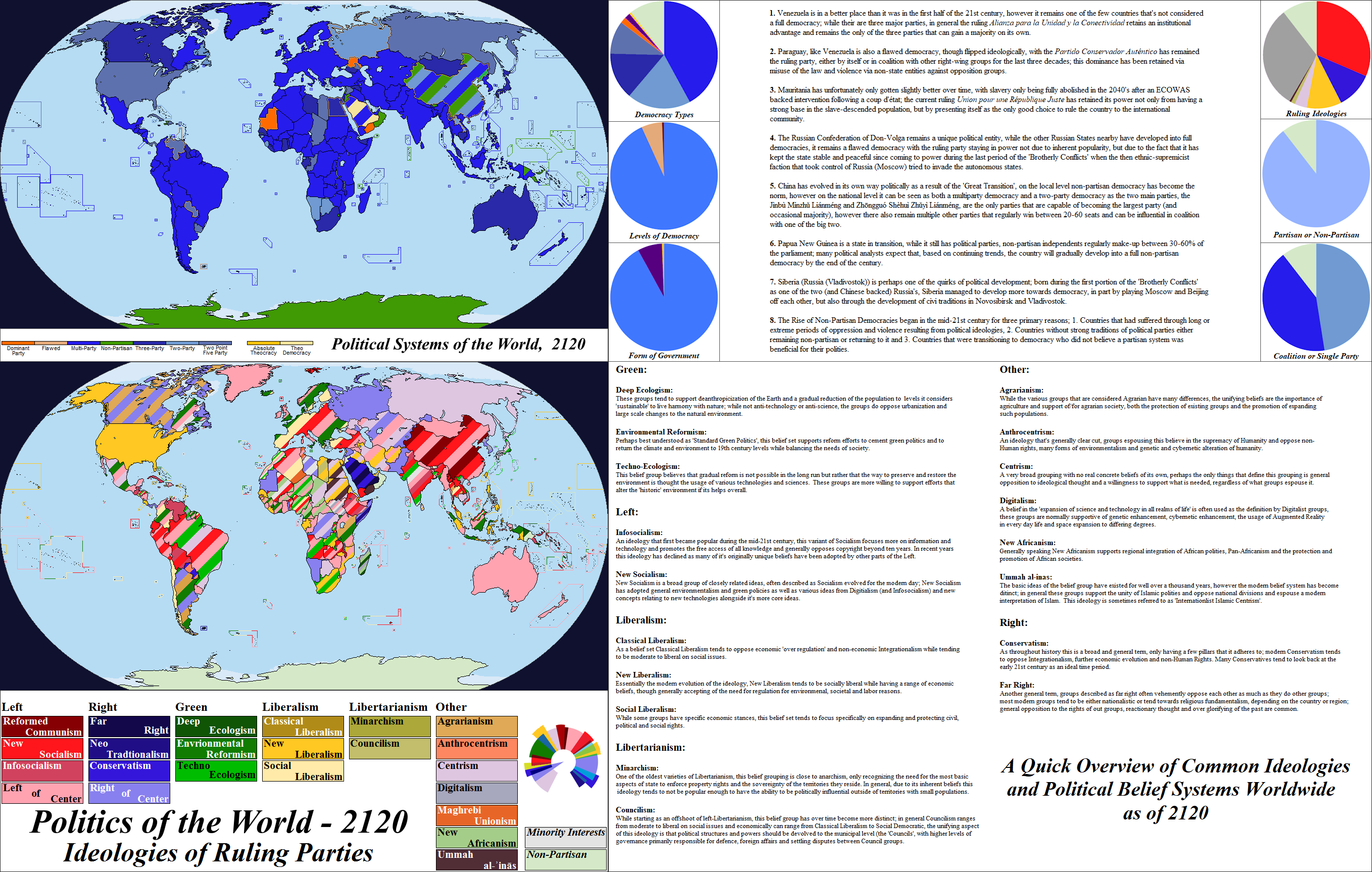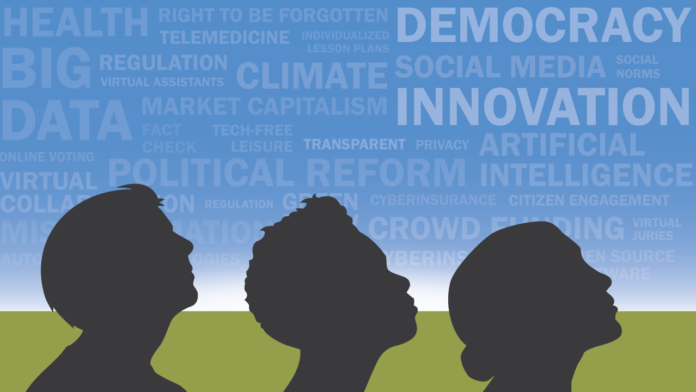Third parties are important in a political system because they offer alternative choices and promote diverse representation. In addition to the major political parties, third parties provide options for voters who may not align with the two dominant parties.
These parties help facilitate a democratic system by offering different perspectives, ideas, and policies, ultimately fostering a healthy and balanced political discourse. The inclusion of third parties also encourages competition, holding the dominant parties accountable and preventing political monopolies. With their presence, third parties contribute to a more inclusive and responsive political system that better represents the diverse interests and beliefs of the population.
Understanding Third Parties
Third parties play a crucial role in a political system as they provide alternative viewpoints and ensure a more diverse representation of the population. Their importance lies in challenging the two dominant parties, promoting competition, expanding policy options, and ultimately strengthening democracy.
In a political system, third parties play a crucial role in promoting diversity, ensuring checks and balances, and representing the interests of minority groups. To fully comprehend the significance of third parties, it is important to delve into their definition and the historical context that shaped their emergence.
Definition Of Third Parties
Third parties, also known as minor parties or alternative parties, are political organizations that exist alongside the dominant two-party system. Unlike the major parties, such as Democrats and Republicans in the United States, third parties provide an alternative platform for political candidates who may differ significantly from the mainstream ideologies.
These parties are typically characterized by a specific focus on a particular issue or constituency, reflecting the diverse interests and concerns of a segment of the population that may not be fully represented by the larger parties. In other words, third parties introduce alternative perspectives and policy proposals to the political landscape, challenging the status quo and providing voters with more choices.
Historical Context Of Third Parties
The emergence of third parties can be traced back throughout history, with notable examples such as the Progressive Party in the early 20th century and the Green Party in recent times. These parties often arise in response to social, economic, or political changes, offering a platform for dissenting voices and marginalized communities.
Minor parties have made significant impacts in past elections, pushing major parties to address neglected issues and adopt new policies. For instance, the Populist Party in the late 19th century managed to bring attention to the plight of farmers and workers, influencing subsequent legislation.
Through the years, third parties have acted as catalysts for change, shedding light on pressing but overlooked matters, such as civil rights, environmental protection, and social justice. Even when third-party candidates do not win elections outright, their presence can influence the political discourse and shape the policies of major parties.
Furthermore, third parties provide a platform for citizens to engage in the political process, encouraging participation and strengthening democracy. Their existence sends a message that alternative voices matter and that citizens have options beyond the limited choices presented by the dominant parties.
In conclusion, understanding third parties involves recognizing their role as alternative platforms, providing diverse perspectives, and representing the interests of specific constituencies. By challenging the status quo and promoting political diversity, third parties ensure a more inclusive and robust democratic system.

Credit: www.pewresearch.org
The Importance Of Third Parties In A Political System
In every political system, the inclusion of third parties plays a crucial role in promoting democracy, enhancing voter choice, and ensuring issue-based politics. Third parties offer a fresh perspective, challenge the status quo, and provide alternative voices, contributing to a more robust and dynamic political landscape.
Promoting Democracy
Third parties are essential for promoting democracy as they provide citizens with more options and prevent a monopoly of power in the hands of the two major parties. By challenging the dominant parties, third parties force them to be responsive to the concerns and needs of a broader range of constituents. This competition fosters a healthier democratic process, ensuring that no single ideology or interest group dominates the political discourse.
Enhancing Voter Choice
Third parties significantly contribute to enhancing voter choice by offering distinct policy platforms and perspectives. This helps break away from the limited options provided by the major parties, allowing voters to align more closely with their individual beliefs and values. With a greater variety of choices, voters have the opportunity to support a candidate or party that better represents their specific interests. This diversity of options reinforces the idea that citizens should have the power to shape their political landscape.
Promoting Issue-based Politics
An important function of third parties is their ability to promote issue-based politics rather than being solely focused on winning elections. Unlike major parties, which may prioritize staying in power, third parties are often driven by specific causes or policy agendas. This emphasis on issues encourages public debate and engagement, shifting the focus away from personality-driven politics. By raising awareness of neglected issues and advocating for solutions, third parties serve as catalysts for progress and change.
Challenges Faced By Third Parties
In any political system, third parties have an important role in providing alternative perspectives, promoting democracy, and fostering healthy competition. However, these political entities often face numerous challenges that hinder their growth and influence. This section will explore the major obstacles faced by third parties, including institutional barriers, campaign finance limitations, and media coverage and public perception.
Institutional Barriers
Third parties encounter a series of institutional barriers that seem to favor the two dominant political parties. These barriers make it difficult for third parties to gain traction and establish themselves as legitimate contenders in the electoral process. One of the main obstacles is the ballot access requirements imposed by state governments. These requirements include thresholds for petition signatures, high filing fees, and complex regulations that often discourage or impede third party candidates from even appearing on the ballot.
Moreover, the winner-takes-all electoral system prevalent in many democracies poses another challenge for third parties. This system discourages voters from supporting third party candidates as it is perceived as a “wasted vote” and reduces the likelihood of these parties winning major elections. The lack of proportional representation further exacerbates this issue, limiting the representation of diverse political ideologies and stifling the growth of third parties.
Campaign Finance
Another significant challenge faced by third parties relates to campaign finance. The financial resources necessary for running successful political campaigns are often disproportionately allocated to the major parties. The significant fundraising advantages of these parties allow them to dominate the political landscape while leaving third parties struggling to compete.
Third parties often struggle to attract large-scale donations and face limitations on fundraising methods due to regulatory frameworks. They may also find it difficult to secure the support of influential donors who are hesitant to contribute to candidates lacking the perceived viability of the major party contenders. The unequal distribution of campaign resources further tilts the playing field against third parties and limits their ability to effectively convey their messages to the electorate.
Media Coverage And Public Perception
The visibility and credibility of third parties heavily depend on media coverage and public perception. Unfortunately, third parties often receive limited media coverage compared to the major parties. The media tends to prioritize coverage of the leading candidates and parties, resulting in limited visibility for third party candidates and their platforms. This lack of exposure makes it difficult for third parties to gain recognition, build support, and challenge the established political order.
Moreover, the public perception of third parties can be influenced by factors such as historical biases, mainstream party narratives, and stereotypes. Third parties are often dismissed as fringe or irrelevant, further undermining their efforts to gain credibility and attract a wider base of support. The combination of limited media coverage and negative public perception creates an uphill battle for third parties to compete on an equal footing with the major parties.

Credit: www.deviantart.com
Success Stories Of Third Parties
Third parties play a crucial role in the political system by offering diverse perspectives and solutions. Their success stories highlight the importance of their contribution for a more inclusive and balanced governance.
Third parties play a crucial role in a political system, often bringing fresh perspectives and ideas that challenge the status quo. While they may not always win elections, third parties have made significant impacts on the political landscape throughout history. In this section, we will explore some notable success stories of third parties and the lasting effects they have had on elections and policy-making.
Impact Of Third Parties On Elections
Third parties can have a profound impact on elections, even if they do not emerge victorious. By providing voters with alternative choices, these parties contribute to a more diverse and inclusive democracy. They challenge the dominance of the two major parties, injecting new voices and perspectives into the political discourse.
Introduction Of New Ideas And Policies
One of the most significant contributions of third parties is the introduction of new ideas and policies that may have otherwise been overlooked. These parties often focus on specific issues or causes that have not gained much attention from the major parties. As a result, they bring these issues to the forefront and force mainstream politicians to address them.
For example, in the 1990s, the Green Party emerged as a viable third party in several countries, advocating for environmental sustainability. Through their campaigns and platforms, they raised awareness about climate change and sustainability long before it became a mainstream concern. Today, policies related to environmental protection and renewable energy sources have become central to the political agenda.
In addition to environmental issues, third parties have also introduced ideas and policies in various other areas. The Libertarian Party, for instance, has championed the rights of individuals, promoting limited government intervention and personal freedom. Their influence has prompted discussions around topics such as drug legalization, criminal justice reform, and privacy rights.
Furthermore, third parties can act as a catalyst for change within the major parties themselves. When a third party garners significant support or threatens to split the vote, the major parties may adopt some of their ideas or policies in order to attract those voters. This phenomenon is commonly referred to as “third-party capture” and demonstrates the impact that minor parties can have on shaping the political landscape.
In conclusion, the success stories of third parties in politics offer valuable lessons and insights for our understanding of democracy. They remind us of the importance of diversity and alternative voices in political discourse. Whether through their impact on elections or the introduction of new ideas and policies, third parties play a vital role in shaping the political landscape and influencing the direction of a nation.

Credit: www.geeksforgeeks.org
Frequently Asked Questions On Why Are Third Parties Important In A Political System
Why Is A Third Party Important?
A third party is important because they provide an unbiased perspective and can offer expertise or services that may not be available internally. They can also mediate conflicts and ensure fairness in situations where a neutral party is required.
Why Are Third Parties Important In A Political System?
Third parties play a crucial role in offering voters alternative choices and promoting diversity in political ideologies.
How Do Third Parties Influence The Political Landscape?
By introducing fresh perspectives and challenging mainstream ideas, third parties force major parties to address and adapt to new issues.
What Impact Can Third Parties Have On Election Outcomes?
Though they may not win elections outright, third parties can influence the outcome by shifting the focus of debates and swaying voter preferences.
Are Third Parties Relevant When Major Parties Dominate?
Even in a system dominated by major parties, third parties can raise awareness of neglected issues and bring attention to alternative policy proposals.
Conclusion
Third parties play a vital role in a political system, offering alternative perspectives and choices for citizens. Their presence challenges the dominating parties, encouraging a more equitable and balanced democracy. By fostering competition and diversity of ideas, third parties promote open dialogue and critical thinking among the electorate.
Embracing third parties allows for a more inclusive political landscape, increasing representation and accountability. Ultimately, their participation strengthens the democratic processes and ensures the voices of all citizens are heard.

